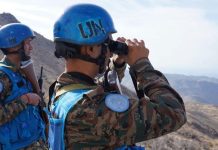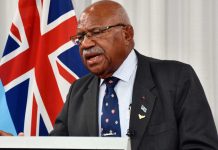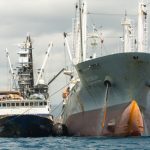By Somit Dasgupta
Whether the ICJ is able to provide some succour to the small island States or not remains to be seen. Its verdict won’t be binding, and, hence, immediate relief is unlikely
After the battle at the 29th Conference of the Parties (COP29) to the United Nations Framework Convention on Climate Change (UNFCCC), the International Court of Justice (ICJ) at The Hague has now become the battleground for the developing and the developed worlds to face off on the climate issue. The ICJ is hearing on this over December 2-13, and the focus would be on determining the obligation of developed-world States with respect to the climate crisis and the legal consequences of these obligations.
The origin of this case before the ICJ lies with a youth group from Vanuatu, called the Pacific Islands Students Fighting Climate Change. This organisation had taken up the matter with the government of Vanuatu, which, in turn, discussed it with a core group of countries and made a reference to the United Nations General Assembly (UNGA) in 2021; 132 countries in the UNGA co-sponsored the resolution, and the matter was referred to the ICJ in April 2023. The resolution relied upon other documents to bolster its case, for example, the UN Charter, the International Covenant on Economic, Social and Cultural Rights, the International Covenant on Civil and Political Rights, the UN Convention on the Law of the Sea, the UN Framework Convention on Climate Change (UNFCCC) and of course, the Paris Agreement. This climate crisis case is the biggest such before the ICJ, where there are 91 written statements and 62 written comments on the statements; 97 States and 11 international organisations (including the Organisation of Petroleum Exporting Countries, World Health Organisation and the European Union) are participating in the proceedings. It has not been easy for States like Vanuatu to pursue this matter given the limited resources and logistics at their disposal. The plight of the other small island States involved in the process is much the same as Vanuatu’s and quite a few of them are participating with pro bono assistance.
The need for the transfer of resources from the developed nations to the developing ones has been the bone of contention in several COP meetings in the past. COP29 was to function as the “finance COP”, but the deliberations only allowed for a transfer of US$300 billion a year by 2035. This is the total quantum of funds that can be expected from the developed nations, the multilateral development banks, the private sector, and also transfers between developing nations themselves, all put together. Further, this is expected to take care of the mitigation and adaptation needs of the developing world. What the small island States are crying for is the immediate transfer of resources to compensate for loss and damage already experienced. They certainly can’t wait till 2035, given the risks of inundation they face. To take care of this, the Loss and Damage Fund was set up during COP27 in 2022 and operationalised during COP28 in 2023. The finer details of this fund are yet to be worked out. The biggest challenge, however, is that there is hardly any corpus to this fund, and, as of date, less than US$700 million has been committed. The biggest historical polluter, i.e., the United States has committed only US$17.5 million — a mere 2.5 percent of the total.
Whether the ICJ is able to provide some succour to the small island States or not remains to be seen. Its verdict won’t be binding, and, hence, immediate relief is unlikely. The ICJ has drawn up a schedule for depositions by each of the 97 countries and 11 international organisations. It would be interesting to see what the developed world will have to say and how much responsibility it would be willing to accept given past emissions. Going by the broad principles of the UNFCCC, the big question is whether the developed nations still uphold the concept of “common but differentiated responsibilities” (CBDR) or plan to keep diluting it, as they have done post the Paris Agreement. One has to accept that developing nations, too, need to reduce carbon emissions and setting targets only for the developed world will not suffice when it comes to meeting the Paris targets. To that extent, CBDR today has to be applied in terms of transfer of resources, which the developed world is loath to do. The developed nations’ position has to be in sync with their actions in the recent past. In all likelihood, they will say that countries like China and the Gulf States (and maybe India, too) need to act as donors to the climate fund. The real intention is to create a wedge among the developing nations.
The ICJ has a difficult job in hand, where it must balance climate equity and justice with geopolitics. One can’t also be oblivious to the fact that one UN institution (ICJ) will be ruling on the founding principles of another UN institution (UNFCCC). The partisan attitude in favour of the developed nations during COP29 inspires very little hope.
Somit Dasgupta is senior visiting fellow, Icrier, and former member (economic and commercial), the Central Electricity Authority.













